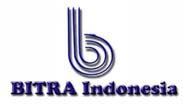 We are grateful that in the appropriate areas of public service has experienced some changes. This can be seen from the start bangkitnya areas of improvement of initiative with the increasing bureaucracy of public service. This certainly is not separated from the encouragement of Law and a new system that continuously improved.
We are grateful that in the appropriate areas of public service has experienced some changes. This can be seen from the start bangkitnya areas of improvement of initiative with the increasing bureaucracy of public service. This certainly is not separated from the encouragement of Law and a new system that continuously improved.Although so many of the less satisfied because of the reform towards good governance bureaucracy are still slow. This is also reinforced by presidency of Susilo Bambang Yudhoyono own (years ago), that our bureaucracy is still working as before, has not changed significantly, act slow, slow decision-making is still slow to process things. Lavish time and inefficient (Kompas, 26/5/2006).
Although the reform has been running for sewindu, and the period of transition has passed, but to achieve maksimalitas so difficult to change the condition of the government bureaucracy or better to the community, especially in the sectors of public service. This is certainly not the only views of one or two factors only, but there are at least 4 factors that must be corrected. These factors are the system factors, the regulation per-invitation-invitation, human resources and know-how moral or bureaucratic mentality itself.
In this paper we will only review the last factor, ie, factors or moral mentality of the bureaucracy and state officials as a "servant of the people." Before independence, after the occupation we Abat 3.5, plus 32 years led by regimes that cause the impression that "officials of the king is necessary dilayanai" added the impression that appear, namely proverb "if you can dipersulit why should dipermudah". Of course this is very difficult to accelerate reform of the bureaucracy.
The period of occupation of the people be crushed where the physical, psychological and mental definitive cause of psychological well used, that is, revenge is one tranformasi-a generation that experienced oppression directly to the next generation, which does not directly experience oppression. Now revenge is translated in the form of which is suppressed when the change of social position (the oppressed become the amtenar or bureaucrats) then he will do "oppression" against the same person "underneath". Not yet, technically, underhanded ways of the colonists is to deal with people, at that time.
Who Paying Country
We know one of the largest sources of financing the operations of state taxes. Receipt of tax year 2005 to Rp 304.1 trillion, the target year 2006 revenues of Rp 416.6 trillion in 2007 and targeting of Rp 456.1 trillion, which consists of income tax (PPh), value-added tax (VAT), sales tax on luxury (PPnBM), Land and building tax (PPB), customs acquisition rights over land and buildings (BPHTB) and other taxes, including income tax, customs levies and export income.
From year to year, the target state's tax revenues continue to be improved. This tax is taken from the pockets of the people, even if the tax is calculated from all who enter it will show a comparison of the number of very large numbers of the above, because it is a secret leak that occurred in the tax office is very large in number.
There are several types of taxes from the people, our term, not directly. One example that we can dust is, tobacco tax (excise apologize because tobacco is easily calculated because the value listed on the tape cukainya). Customs tobacco within the tobacco banderole average of 40%. Why is tobacco tax so high? Because smoking is considered a special item. Why are considered a special item? Because they can damage the health. So if we calculated the price of cigarettes perbungkus average Rp 7000, - then the tax from 1 packet of cigarettes is Rp 2800, -. If every smoker in the 1-packets per day, per person and we have estimated 100 million cigarette penghisap of 220 million population of the numbers that will appear from the special excise goods is very fantastic, that is, Rp 280 billion per day, alias Rp 8.4 trillion per month, or Rp 102.2 trillion per year.
1 of this new type of consumer goods in use by the people. Not yet another of goods (goods not specific), which we consume, tax is usually under 5%. Certainly not the people (consumers) that directly give money to the government but the companies that buy banderole who submit them. However, if the value does not have the tobacco tax 40% of the price of cigarettes does not Rp 7000, - per-packet in the hands of consumers (the price may be only Rp 4200, -), because the company does not want to charge so that the loss is tax to consumers through price .
The description above is only one example where countries are funded by people from various taxes, quote, restribusi, customs, income etc..
Upgrading Enlightenment
And what relation to the reform of the bureaucracy? Keep well socialized to all the bureaucracy, the civil servants (PNS) Police officers and army that they dihidupi of the money paid by people in the country. This is the element that penyadaran very important to dismantle the bureaucracy and understand how to work long bureaucracy.
If the past is upgrading, and practice guidelines Penghayatan Pancasila (P4). It is now time for the upgrading penyadaran to the bureaucracy and civil servants, with the cargo, which obtained from sources including state pebiayaan used to hire and cost oprasional offices bureaucratic institutions work. Also for the work done.
In pre-term orientation of civil servants, this cargo should also be given the main cargo on the potential civil servants so that when they perform the task to its civil servants in conditions that realize that they are right by the people paid to work and therefore work for the people, not for self-interest and the or investors.
With so will most likely be created in the bureaucracy of the acceleration of reform bureaucracy towards good gouvernance as has happened in the developed countries into the goal with a goal state.
Iswan Kaputra, Social Worker at BITRA Indonesia, Medan and Chairman of the Forum Community of origin Labuhan Batu (FORMAL).








Tidak ada komentar:
Posting Komentar